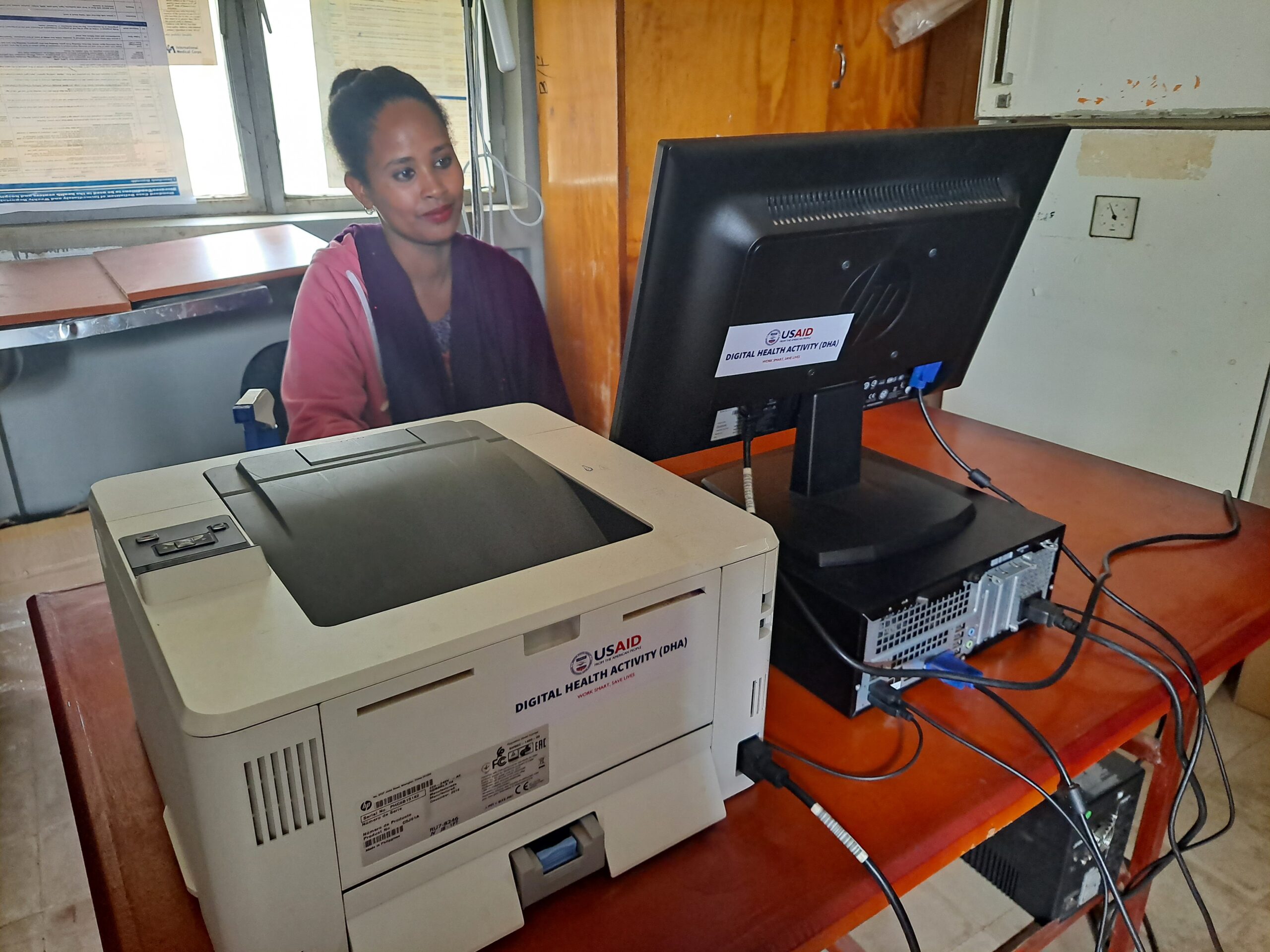The Importance of Quality Data for Decision-Making? The Case of East Harerge Zone Health Office in Ethiopia
“We didn’t have standards to collect information from the patients. Now, using the Health Information System, health professionals received training on how to use eCHIS to collect information and analyze it.” Mesfin Shewangzaw, a program coordinator at East Harerge Zone Health Office, explained.

Photo: Mesfin Shewangzaw, program coordinator at East Harerge Zone Health Office.
Data quality is one of the most critical components of a strong health system: comprehensive and accurate data, and thorough analysis of it, can tell health systems where and how to invest to achieve health equity and delivery of the highest quality care. JSI’s USAID-funded Digital Health Activity (DHA) provides support in data quality and data use for various health program sites, including East Harerge Zone Health Office.
DHA offers material and technical support to health posts and zonal health offices to digitize health information system technology. DHA has provided IT infrastructure support, training, mentorship, supervision, and data quality assurance to transform the institutional culture of using quality-assured data for decision-making. Progress made toward digitizing the country’s health system has enabled the Ministry of Health to address challenges in adapting to new technology, while creating autonomy and efficiency in the Ethiopian health system.
According to Mesfin, prior to digitization efforts incomplete data collection was a constant challenge. Data was often delivered in paper-based format, some were delivered incomplete and tooling used to analyze was practically nonexistent “We started reorganizing the data management system in the records area and we began our annual work planning using those records which are now completely digitally mined. No painstaking data entry or in-the-weeds analysis, we can just rely on real time data recording from health sites through our analyses, these data are more complete and we analyze the data routinely”
When asked how this more comprehensive and real-time data is enabling him to do his work more effectively Mesfin responds “We would never have been able to sit down at an annual work planning meeting and use evidence of health system use to inform our work ahead. Just last year, we sat down and reviewed our previous year’s data as a baseline. We were able to decide what resources are needed, how many healthcare workers are required, and other important information to prepare us for the year ahead,” he said.
The East Harerge Zone Health Bureau, based on the criteria established by the Ministry of Health, is now home to three “model” health woredas, thanks, in part, to expansion in digital data recording, collection, analysis and use.
